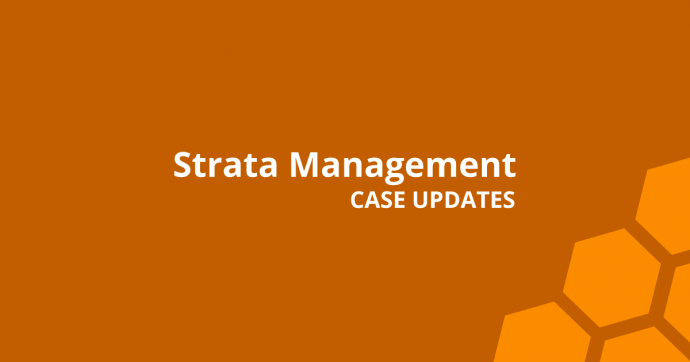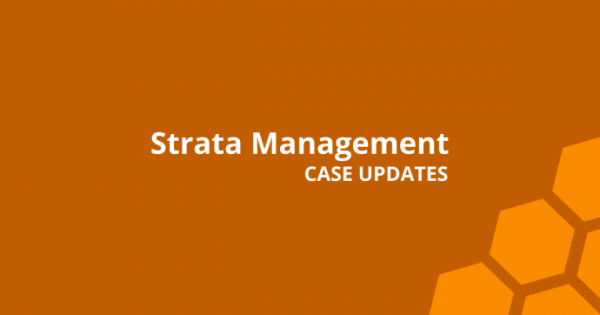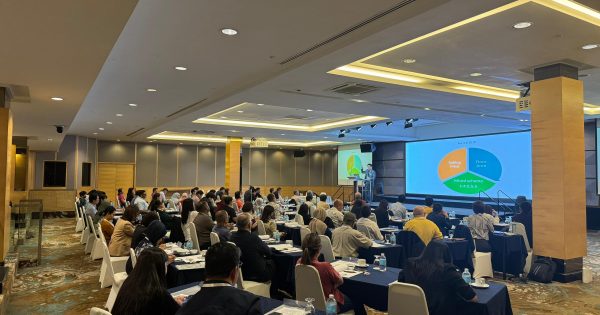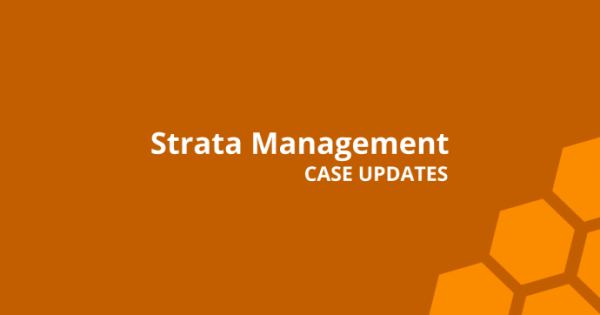
CASE UPDATE: Court of Appeal – Yong Kein Sin & Anor v Perbadanan Pengurusan Springtide Residences and other appeals [2025] MLJU 1469
Facts:
There are 3 Appeals that were heard together before the Court of Appeal.
The 1st Appeal
The development comprises of 74 apartment units and 3 villas. At its 1st AGM on 26.4.2013, the MC passed a by-law allowing recovery of legal costs incurred in enforcing by-laws. A parcel owner filed a claim at the Strata Management Tribunal (SMT) in 2019, challenging the maintenance rate, but the claim was dismissed as it was against the wrong parties, with RM250.00 costs awarded to each respondent. The MC later invoiced the parcel owner RM11,234.95 for legal fees under the by-law. The parcel owner then filed a suit in the High Court challenging the validity of the by-law, which was dismissed with RM5,000.00 in costs.
The 2nd Appeal
The MC imposed different maintenance rates on the apartment owners and villa owners. The Appellants filed a suit in the High Court seeking to invalidate the differing rates and recover the shortfall from villa owners. The High Court dismissed the suit with RM8,000.00 in costs, finding that the claim was barred by res judicata, delay, and acquiescence.
The 3rd Appeal
At the 9th AGM on 17.12.2021, the MC passed a resolution to raise RM1.45 million via monthly instalments from all proprietors based on share units, for capital works including flood protection, security upgrades, facade access infrastructure, and a sinking fund contingency. While a suit challenging this resolution was pending, the MC reclassified the cash call as a sinking fund contribution at an EGM on 30.8.2022. The High Court dismissed the suit with RM15,000.00 in costs, holding the resolutions were valid under sections 51(2)(c), (e), 59(1)(a), (c), and 61(3) of the Strata Management Act 2013.
The issues to be determined by the Court of Appeal are as follows:
1st Issue: when a claim is filed in a SMT by a ”parcel owner” in a “development area” (defined in section 2 of SMA 2013), does section 106(1) SMA 2013 bar access to the courts by the parcel owner?
2nd Issue: whether a decision of the SMT attracts the application of the doctrine of res judicata?
3rd Issue: can a suit filed by a parcel owner against a MC regarding the development area be barred by /aches and/or inordinate delay on the part of the parcel owner in filing the suit?
4th Issue: can the By-Law (MC’s Indemnity) be lawfully made pursuant to section 70(2) SMA 2013, including paragraphs (a) to (i) of section 70(2) SMA 2013? In this regard, is section 70(2) SMA 2013 exhaustive of all the circumstances in which a MC is empowered to make a by-law?
5th Issue: whether the MC can rely on sections 59(1)(h), (2)0), (6)(a), 77(1) and/or 143(3) SMA 2013 to justify its enforcement of the By-Law (MC’s Indemnity)?
6th Issue: with regard to the 2nd Appeal, can the MC’s Different Rates be justified under section 60(3)(b) SMA 2013?
7th Issue: with respect to the 3rd Appeal, can the Cash Call (RM1 .45 million) and the Resolution (EGM) be lawfully imposed by the MC pursuant to section 51 (2)(a) to (e), 59(1)(a), (c) and/or 61(3) SMA 2013? What is the extent of the MC’s duty and/or power under the SMA 2013 to impose the Sinking Fund Contribution?
Court of Appeal’s decision
1st issue: The Court of Appeal are of the view that if a person who has filed a claim in the SMT, no court proceedings can be filed regarding the subject matter of the claim in SMT save in the circumstances stipulated in the proviso (a) or (b) to section 106(1) SMA 2013. The word “dismissed” that was expressly stated in the SMT’s Award means “struck out” as the SMT did not decide the issues on the merits. The Court of Appeal further stated that if the SMT’s Award could bar the 1st Suit, the fundamental right of the parties to file the 1st Suit under Article 5(1) FC, namely, their fundamental access to justice, would have been unlawfully deprived.
2nd issue: The Court of Appeal are of the view that an award of a SMT does not attract the application of the doctrine of res judicata. This is because a SMT is not a “Court” as defined in Section 3 of the Court of Judicature Act 1964 and/or Section 3(2)(a) and (b) of the Subordinate Court Act 1948. The SMT is an inferior tribunal created by section 102 SMA 2013 with limited jurisdiction according to section 105(1) and (3) SMA 2013. Notwithstanding the fact that section 120(1)(a) SMA 2013 provides that an award of a SMT “shall be final and binding on all parties to the proceedings”, an award of a SMT may nevertheless be challenged in the High Court either by section 121(1) to (3) SMA 2013 or by way of Judicial Review.
3rd issue: The Court of Appeal is of the view that section 6(1)(a) to (d) and (2) to (6) LA 1953 does not provide for a limitation period for any action to invalidate a By-Law/MC’s Decision. There is no other provision in the LA 1953 which stipulates a limitation period for a suit to invalidate a By-Law/MC’s Decision. This is understandable because if a By-Law/MC’s Decision is unlawful pursuant to the SMA 2013/Subsidiary Legislation, the By-Law/MC’s Decision is void ab initio and cannot be enforced at all. In such case, any party who is adversely affected by the invalid By-Law/MC’s Decision, may apply to the court to invalidate the By-Law/MC’s Decision without being shackled by any limitation defence under the LA 1953.
4th and 5th issues: The Court of Appeal is of the view that there is nothing in section 70(2) of the SMA 2013, whether expressly or by necessary implication, that confers power on the MC to pass the By-Law (MC’s Indemnity), as it is neither required nor necessary for the regulation of the MC and does not fall within any of the categories listed under paragraphs (a) to (i) of section 70(2) SMA 2013. Accordingly, the By-Law (MC’s Indemnity) is unlawful for being ultra vires section 70(2) SMA 2013, and the High Court had erred in law by failing to address the issue of its invalidity.
6th Issue: The Court of Appeal decided to follow the cases in Muhamad Nazri and AUM Capital where a MC can only impose different rates of Charges in a development area pursuant to section 60(3)(b) SMA 2013 if the parcels in the development area are “used for significantly different purposes”. The MC cannot impose different rates of Charges in a development area under section 60(3)(b) SMA 2013 merely on the ground that it is ‘Just and reasonable” for the MC to do so.
7th Issue: The Court of Appeal is of the view that only the specific provision of section 61(3) SMA 2013 [not section 51(2)(c), (e) SMA 2013 and any other provision in the SMA 2013] can be considered by the Court in deciding the MC’s Duty/Power (Sinking Fund Contribution). The MC duty under section 59(1)(c) SMA 2013 must read together with section 52(1), (3) and 61(3) SMA 2013. There are two possible interpretations of the section 61(3) SMA 2013, namely:
- The MC has the power to pass a resolution at the MC’s AGM and/or EGM which can increase the Sinking Fund Contribution to any amount in excess of 10% of the Charges (1st Construction); or
- The MC cannot pass a resolution at the MC’s AGM and/or EGM which can increase the Sinking Fund Contribution to a sum exceeding 10% of the Charges (2nd Construction).
The Court of Appeal accepted the 2nd Construction of section 61(3) SMA 2013 because if Parliament had intended the 1st Construction, the legislature would have employed the phrase “notwithstanding section 52” in the section 61 (3) SMA 2013 and if the Court of Appeal have accepted the 1st Construction, the MC would have unlimited power to pass a resolution at the MC’s AGM and/or EGM to increase the Sinking Fund Contribution to any amount in excess of 10% of the Charges. Such an outcome is contrary to the Social Legislation Construction.
Key Takeaways
The Court of Appeal has clarified several important points as abovementioned.
1st – once a claim is filed in the SMT, parallel court proceedings on the same subject matter are barred unless it falls within the exceptions of Section 106(1) of SMA 2013 and that the SMT did not decide the issues on merits.
2nd – the SMT award do not attract the doctrine of Res Judicata, as the SMT is not a “court” within the meaning of the Courts of Judicature Act 1964.
3rd – there is no statutory limitation period under the Limitation Act 2953 to challenge the unlawful by-laws, as the same are void ab initio.
4th – a by-law passed in indemnifying the MC for legal cost incurred is ultra virus of Section 70(2) SMA 2013.
5th – different rates of charges under Section 60(3)(b) SMA 2013 are only permissible if the parcels are used for significantly different purposes.
6th – the MC is not empowered to increase the sinking fund contribution to a sum exceeding 10% of the Charges in the resolution which is contrary to the Social Legislation Construction.


